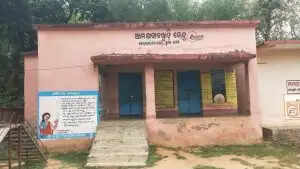Challenges in Early Childhood Education: Are Government Initiatives Enough?
Baripada's Education Landscape Under NEP 2020

This academic year marks the rollout of the National Education Policy (NEP) 2020 in Baripada, bringing forth notable modifications aimed at boosting enrollment in the education sector. The government has initiated the 'Khadi Chhuan' programs as part of the 'Sishu Vatika' initiative, focusing on promoting early childhood education.
Despite these efforts, preschool education in rural regions continues to encounter significant hurdles. Many Anganwadi Centres (AWCs), which are crucial for early education, are functioning from rented premises, raising doubts about the effectiveness of government strategies to provide quality education.
In the Mayurbhanj district, there are 5,152 AWCs spread across 26 blocks, two municipalities, and two Notified Area Councils (NACs). Alarmingly, 1,055 of these centres lack permanent structures, with 293 operating in rented spaces. Furthermore, 180 AWCs are situated in community buildings, while 582 are located within school premises, which many parents deem unsafe for their children.
Consequently, parents are reluctant to enroll their children in these centres, often opting for private schooling instead. Although plans exist to build new AWCs, several projects remain unfinished, and others are still under construction. The absence of adequate infrastructure has severely impacted the implementation of educational programs, including teaching, mid-day meals, play-based learning, and educational gardens. The lack of hygienic learning environments, coupled with children studying on the floor, has further deteriorated their educational experience, leading to a decline in trust towards AWCs and a shift towards private education.
Despite the District Collector's consistent reminders to Block Development Officers (BDOs), the situation remains unresolved. Parents from Belpal village in the Badasahi block, including Purnendu Basang, Shakti Basang, and Dipu Basang, have expressed frustration over the lack of accountability and neglect from officials, noting that no new AWCs have been constructed in their area for the past two decades. The district serves a total of 2,45,441 beneficiaries, which includes 1,13,632 children aged three to six months, 12,764 postpartum mothers, 17,392 pregnant women, 12,452 infants under six months, and 89,201 children aged six months to six years.
Unfortunately, the schemes designed for these groups have largely fallen short. When approached for comments, District Social Welfare Officer Niharika Mahati assured that all necessary actions are being taken under the District Collector's guidance, with ongoing construction efforts led by municipal authorities in urban areas and block administrations in rural settings.
However, delays have hindered the completion of these projects, rendering existing AWCs ineffective. To enhance child recreation facilities and improve health and nutrition for pregnant and postpartum women, a plan has been introduced to transform AWCs into model centres. The Odisha Mineral Bearing Areas Development Corporation (OMBADC) previously developed a blueprint for upgrading the Mayurbhanj district.
In 2019, OMBADC proposed a Detailed Project Report (DPR) amounting to Rs 528 crore for the construction of 826 AWCs. Each centre was allocated Rs 15 lakh, with additional funds ranging from Rs 4.5 lakh to Rs 7.5 lakh designated for renovating existing centres. In the first phase, funding for 346 model AWCs was approved in 2021-22, with construction commencing shortly after. Out of these, 300 centres have been completed, while work on 46 is still ongoing.
Despite this progress, funding approval for an additional 480 centres remains pending, despite numerous notifications from the administration to relevant departments. Parents are increasingly concerned that without prioritizing early education under NEP 2020, both Central and state government initiatives will fail to meet their intended goals.
